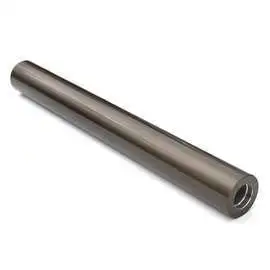Automotive Rubber Seals Manufacturing for Enhanced Vehicle Performance and Durability
The Automotive Rubber Seals Factory A Crucial Component in Vehicle Manufacturing
In the automotive industry, ensuring the quality and longevity of vehicles is paramount. Among the myriad of components that contribute to a vehicle's performance and durability, rubber seals stand out as critical elements. An automotive rubber seals factory plays a crucial role in this sector, providing essential parts that prevent leaks, mitigate noise, and protect sensitive mechanisms from the adverse effects of environmental conditions.
Understanding Rubber Seals
Rubber seals, also known as gaskets or O-rings, are designed to fill the space between two or more mating surfaces. Their primary function is to prevent the passage of fluids and gases under compression. In the automotive context, these seals are found in nearly all areas of a vehicle—from the engine and transmission to doors and windows. They serve not only practical purposes but also enhance the overall driving experience by ensuring that vehicles are safe, efficient, and comfortable.
The Manufacturing Process
The process of manufacturing automotive rubber seals involves several key stages. First, the selection of raw materials is critical. Various types of rubber, including natural rubber, synthetic rubber, and specific compounds designed for high-performance durability, are chosen based on the application requirements. Factors such as temperature resistance, chemical exposure, and flexibility are considered to ensure that the final product meets the stringent standards of the automotive industry.
Once the materials are selected, the manufacturing process begins. This usually involves mixing the rubber compounds with various additives, such as curing agents and colorants, to achieve the desired properties. The mixture is then shaped into the desired forms through processes like extrusion, molding, or calendaring. Extrusion, for instance, is commonly used for producing continuous seals, while molding can be tailored for specific shapes and sizes.
After shaping, the seals undergo curing, a critical step that transforms the rubber into a resilient, elastic material. This is typically achieved through a vulcanization process, which involves heating the rubber in the presence of sulfur or other curatives. Curing enhances the mechanical strength and thermal stability of the seals, making them suitable for the demanding conditions they will face within a vehicle.
automotive rubber seals factory

Following curing, quality control measures are implemented to ensure that each seal meets required specifications. Manufacturers use various testing methods, such as pressure tests, tensile strength tests, and thermal analysis, to guarantee that the seals can withstand the conditions they will encounter during their lifecycle.
Importance in Automotive Applications
The significance of automotive rubber seals cannot be overstated. For instance, they are essential in preventing oil leaks in engines, which can lead to severe damage and costly repairs. Rubber seals are also used in windshield installations, where they provide a water-tight barrier, protecting the vehicle's interior from rain and debris. Additionally, they help reduce noise and vibrations, contributing to a quieter and more enjoyable ride.
Moreover, with the rise of electric and hybrid vehicles, the demand for high-quality rubber seals is evolving. These vehicles often require advanced materials that can handle increased temperatures and unique environmental conditions. Consequently, automotive rubber seals factories must stay ahead of technological advancements and market trends to remain competitive.
Sustainability Efforts
In recent years, sustainability has become a significant focus within the automotive industry. Many rubber seals manufacturers are seeking eco-friendly alternatives and practices to reduce their environmental impact. This includes using recycled materials, implementing energy-efficient processes, and ensuring that their products are designed for longevity—reducing waste and promoting a circular economy.
Conclusion
The automotive rubber seals factory is an integral part of the vehicle manufacturing ecosystem. Providing essential components that ensure performance, safety, and comfort, these factories must continuously innovate to meet the ever-changing demands of the automotive industry. From the careful selection of materials to the precision of the manufacturing process and the implementation of sustainability practices, every aspect of rubber seals production plays a vital role in enhancing the overall quality of vehicles on the road today. As the automotive landscape evolves, the contribution of rubber seals and their manufacturers will undoubtedly remain essential in powering the future of transportation.
Share
-
The Best Lubricants for Aluminum Roller GuidesNewsJul.23,2025
-
Slitting Machine Applications in the Packaging IndustryNewsJul.23,2025
-
Rolling Roller Balancing Techniques for Smooth OperationNewsJul.23,2025
-
How To Optimize An EV Battery Assembly LineNewsJul.23,2025
-
Energy Efficiency in Modern Battery Formation EquipmentNewsJul.23,2025
-
Automation Trends in Pouch Cell Assembly EquipmentNewsJul.23,2025







